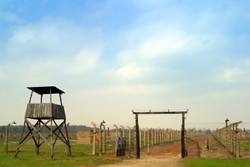Tracing Holocaust memory
The Holocaust took place between 1933 and 1945 primarily in eastern Europe. At that time, eastern Europe was understood as the countries that were ruled by communism between 1945 and 1989 and have since been integrating into the EU. The project 'The Europeanisation of the Holocaust memory in eastern Europe' (EURHOLMEM) focused on the states that acceded to the EU in 2004 and 2007. In this case, memory was seen from the angle of cultural and social studies, centring on remembrance and memorials and museums. The Europeanisation of Holocaust memory is how beliefs about the Holocaust are constructed and institutionalised, including formal and informal norms. They have been defined, consolidated and incorporated into the practices of European countries. An assessment of how much indigenous and exogenous Holocaust memory exists in eastern European countries was a main project objective. Additionally, EURHOLMEM turned to international/European organisations to examine the Europeanisation of Holocaust memories. The slower development in western Europe, Israel and the United States was considered. Comparative analysis, ethnographic study and reviews of history were all part of the process. Overall findings show that cosmopolitan and (west) European memory of the Holocaust has made significant contributions to the development of Holocaust memory in eastern Europe since 1989. Influence of European Holocaust memory is primarily seen on Holocaust Remembrance Days and educational programmes in almost all eastern European countries. Results of the project will help contribute to a better understanding of both the initial and final developments of the memory of the Holocaust in the area in which it took place. Through this, the role of cosmopolitan and European Holocaust memory and transitional agents, including the EU, is highlighted.



